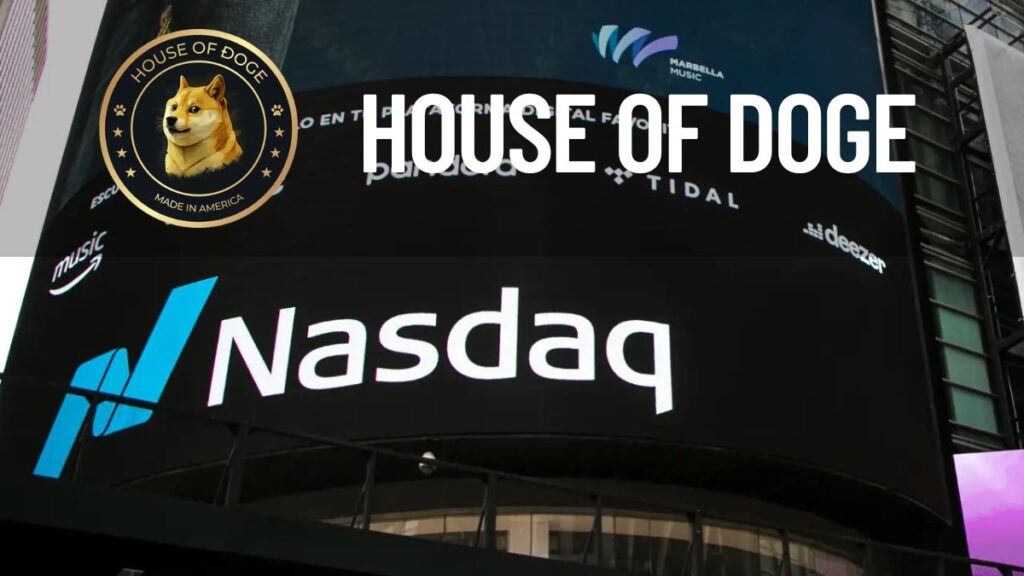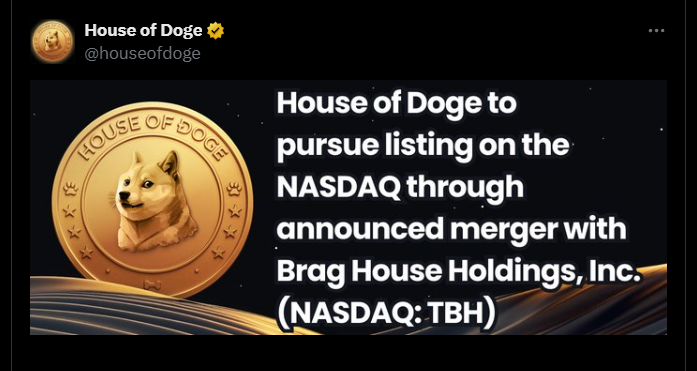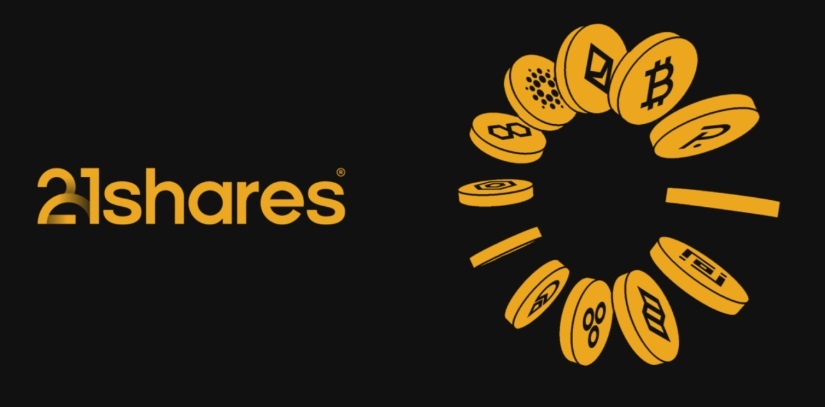TL;DR
- House of Doge began trading on Nasdaq after merging with Brag House Holdings (TBH), marking its formal entry into traditional capital markets.
- CEO Marco Margiotta said access to new capital will accelerate the development of global payment infrastructure built around the memecoin.
- Investors include Rick Perry, the Steinbrenner family, Mario Nawfal, and several NHL players, alongside support from Alex Spiro.
House of Doge began trading today on Nasdaq following a reverse merger with Brag House Holdings (ticker: TBH), a company focused on the college online gaming sector.
The transaction marks the formal entry of the memecoin’s corporate structure into traditional capital markets, aiming to strengthen token adoption within the conventional financial system.
New Capital to Develop a Payment Network
CEO Marco Margiotta explained that listing on the stock exchange will provide access to the capital needed to accelerate the development of a Dogecoin-based payment infrastructure. He said the expansion of funding will be key to scaling payment solutions over a shorter timeframe. The initiative is backed by Alex Spiro, Elon Musk’s personal attorney, along with several institutional investors and public figures.
Key investors include former Texas Governor Rick Perry, the Steinbrenner family (owners of the New York Yankees), entrepreneur Mario Nawfal, and several current and retired NHL players such as Tyler Seguin, Jason Arnott, and Ales Hemsky.
House of Doge was founded in early 2025 and has launched several projects aimed at introducing Dogecoin into traditional finance and mainstream consumer markets. It is also a key partner of CleanCore, a fund with a treasury backed by the memecoin valued at $170 million and listed on the New York Stock Exchange.
Awaiting the Dogecoin Spot ETF
Together with 21Shares, the company has filed an application to list a Dogecoin spot ETF, which could be approved before the end of the year. It is also working with 21Shares and Robinhood on new yield-generating products and alternative investment vehicles based on the memecoin.
The company also plans to expand the tokenization of popular culture assets, starting with the sports world, aiming to connect the Dogecoin community with other fan groups. According to Margiotta, this combination of culture, entertainment, and crypto is a strategic channel to expand the token’s utility and visibility.
Going public will allow the company to pursue its expansion plan more aggressively than it could as a private entity. Margiotta concluded that growing Dogecoin’s utility should ultimately benefit all holders













